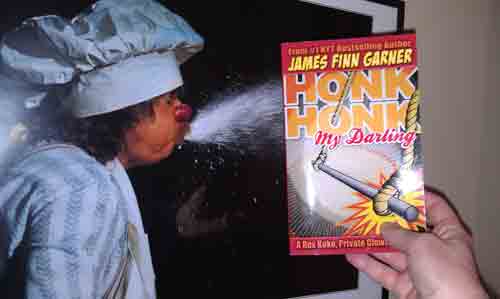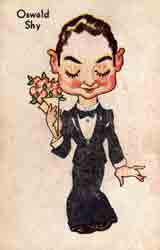 The setting last Saturday was my favorite bookstore in town, the Book Cellar. The event, the Book of the Year Awards for the Chicago Writers Association. When I got there, maybe six people were scattered around on folding chairs. I went to say hello to Randy Richardson, president of CWA, and his wife. I introduced myself to the other winners in the competition.
The setting last Saturday was my favorite bookstore in town, the Book Cellar. The event, the Book of the Year Awards for the Chicago Writers Association. When I got there, maybe six people were scattered around on folding chairs. I went to say hello to Randy Richardson, president of CWA, and his wife. I introduced myself to the other winners in the competition.
Before too long, I turned around and was shocked to see the bookstore completely packed. More than 100 people sat and stood, waiting for us to get the show on the road.
A face or two was familiar, but none were more important than those of my ever-lovin’ wife and two kids. My kids have never seen me read at a big event, because during the past decade, almost all of my readings have been in taverns. There were times 15 years ago when I could occasionally pull a crowd this big. I wanted to show them that their dad wasn’t just the creep who prowls the mezzanine, stocking his mancave with stage props and comic books.
Earlier in the afternoon, I had faced the panicky decision of what to read for the evening. Most of my books have lent themselves to easy excerpts for events like this, but Honk Honk, My Darling was fiction of a weird, rambling, immersive sort. Could I come up with 8-9 minutes that were exciting and coherent and gave a good taste of the book’s contents? I decided against reading the passage of the brawl at the clown bar (want to avoid HHMD being pigeonholed as a clown book) and chose a two-person scene that had a smattering of circus parlari but not too much. Oh, and one that ended in a theatrical killing.
I don’t think I’ve ever been more nervous before a reading, certainly not recently. It’s been a long while, and the relaxed stage demeanor is only easy to fake when I’m in shape. And all false modesty aside, while HHMD was being given an award, it’s a very strange book, not suited to everyone’s taste. This would be an acting exercise, because the two characters in the passage were very different. In reality, this was going to be a short audition, in front of a packed house, in a familiar place (a fact that actually made things harder).
Randy introduced the program and the mission of the Chicago Writers Association. Then, first up to read was Krista August, who won the Nontraditional Nonfiction award for her catalog of the statues in Chicago’s Grant Park, Giants in the Park. She had also illustrated the book with her own watercolors, which I hadn’t realized. She brought along the whole box of them. She told the story of General William Sheridan, both his personal history and that of his statue. (She omitted the tale of what happens to the horse’s genitals on the statue whenever the Pittsburgh Pirates come to town, and she asked me to keep it to myself. Being a classy guy, I acquiesced.)
Next came Pamela Ferdinand reading from her memoir about three friends, late romance, and donor sperm, Three Wishes. Her passages were very funny and touching. Transplanted from the East Coast, she’ll be a good addition to the Chicago scene.
Then Randy introduced me, with way too much praise to make me comfortable. (He’s a huge fan of the HHMD podcast, and makes me feel guilty when I fall behind in production.) He handed me the lucite award, plus the gift card that came with winning. It felt dense yet incredibly delicate. I became afraid of dropping it, so I set it on a table quickly.
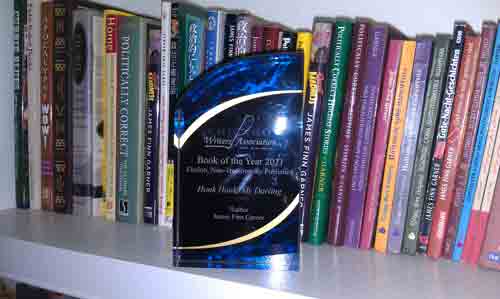
This was the first physical trophy I had won since high school, when I got a statue for staying in the Gabriel Richard Club for grade point average for four years. That one sits in my office, not ironically, but with pride and affection, because my father made sure the panel on the statue was engraved with all four years.
My intro describing the genesis of Rex Koko and this self-pubbed book seemed long and rambling, but my wife told me later it was spot-on. I then read a passage from Chapter 8, in which Rex confronts the daredevil Flying Fleming to find the woman he’s looking for. The most frightening part was how easily I slipped into those two characters. Recording the podcast had forced me to create their vocal profiles, but upon reading it started to become my own one-man show. Laughs were not numerous, but somehow the audience grew stone silent and hung on every word. A reflection on the writing? I guess, but it was the comfort with acting that was the most disconcerting. It all felt too natural. Does this mean I have to get out of my mezzanine command center and actually perform in front of people again? St. Genesius, please spare me that fate. I’m insufferable enough as it is.
The final reader of the night was the lovely Christine Sneed, who read from her book of short stories, Portraits of a Few of the People I’ve Made Cry. She read a funny and perceptive passage about a creative writing teacher reacting to having a famous young actor in her class. Christine’s writing is strong and clear, and you’d do yourself a favor to check it out. (For profiles of all these winners, go to the Chicago Writers Association blog.)
Do I have any kind of problem with books being chosen for awards? Hell no. The word “appreciation” doesn’t begin to describe how I feel. After working on the Rex novels for more than 10 years, operating solely on faith and stubbornness, it’s almost unreal that other people believe in the book as much as I did. It’s like everyone recognizing your invisible, imaginary friend at a dinner party. I’m grateful but disoriented.
But now I can tout “Rex Koko, Private Clown” as an “award-winning” mystery series and not be lying (except for the idea that a book and a half constitute a “series”). Frankly, that’s going to help on those slow mornings when what I do seems like a ridiculous way to spend one’s life.
Woody Allen’s whole “don’t show up at the Oscars” schtick is a little rarefied and elitist for me. Furthermore, I think it’s a calculated move to cement his image, what with his clarinet gig that he simply won’t interrupt to schmooze in Hollywood. He won the statue for “Annie Hall”, and he can rest on that while avoiding the awkwardness of being nominated and not winning.
The arts are in no way a competition (except maybe for movies on Memorial Day, but even then, it’s not like a movie ultimately “loses”), even if the presenting of awards makes it seem like there are winners and losers. It’s human nature to want to find distinction among a group of peers. And because they are popular, awards are a good way for people to expand their reading rosters beyond their comfort zones. Anything that promotes more reading is good for writers earning a living, so I’m behind that.
But I’ll say it now: If I’d lost out on this award, I’d’ve been a pretty miserable prick to be around for a weekend or two.
UPDATE: Here are a few pictures from the event. The first two were taken by photographer Mark Thomas.
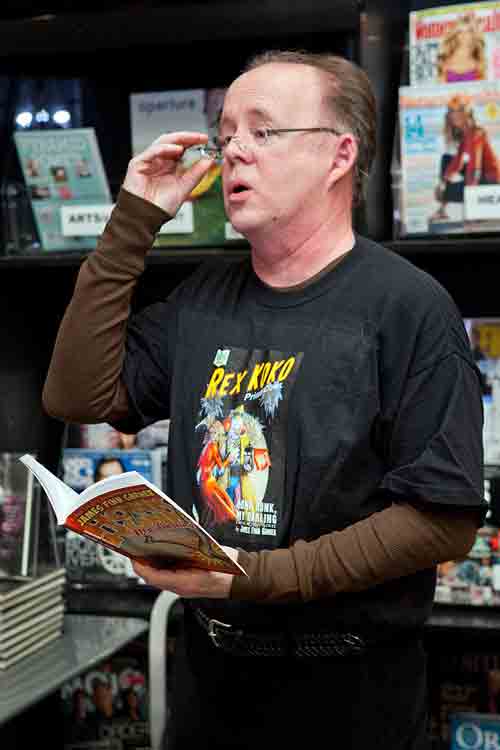
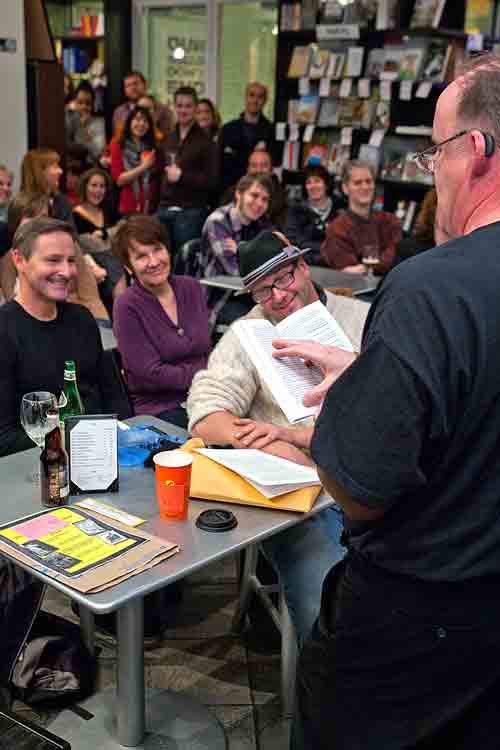
And here is me with Christine Sneed, who won the Traditional Fiction award for her book of stories, Portraits of a Few of the People I’ve Made Cry. Photo by Mitsuko Richardson.
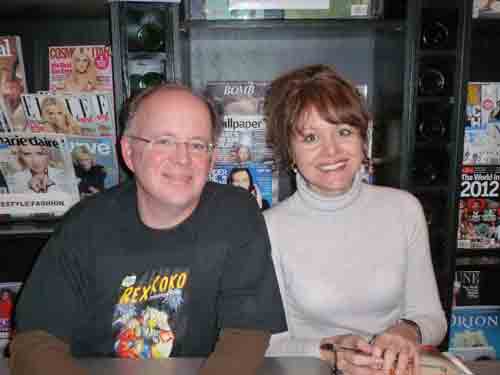
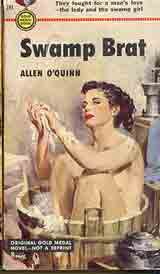 That queasy feeling in my stomach I’m presently feeling is only partially due to my head cold, and not at all due to our dinner last night of pork posole. (Mmmmm. Pork posole….) No, this feeling of vertigo and fuzzy focus and slight fearful paranoia means only one thing: I’m on the precipice of writing another book.
That queasy feeling in my stomach I’m presently feeling is only partially due to my head cold, and not at all due to our dinner last night of pork posole. (Mmmmm. Pork posole….) No, this feeling of vertigo and fuzzy focus and slight fearful paranoia means only one thing: I’m on the precipice of writing another book.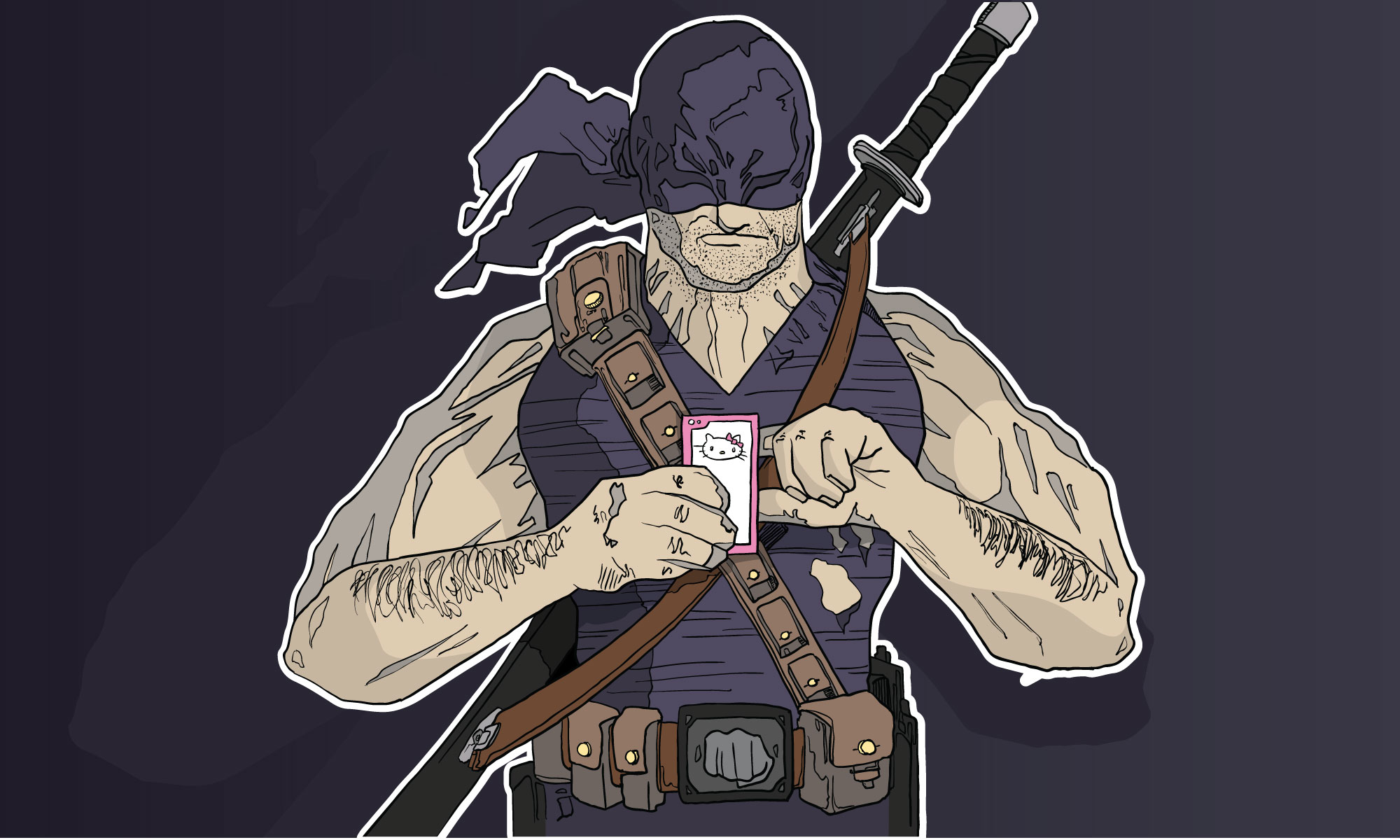

 The setting last Saturday was my favorite bookstore in town,
The setting last Saturday was my favorite bookstore in town, 



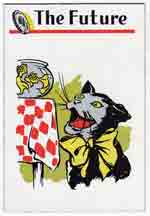 Hello, all you bips and kinkers. Hope your New Year is still smooth and shiny, still sporting that New Year smell. Things are finally quiet here on the Mezzanine Level, as both my Ever-Lovin’ Wife, Number One Son and The Urchin have all returned to their respective schools. Me? I just return to the four corners of my battered yet resilient psyche.
Hello, all you bips and kinkers. Hope your New Year is still smooth and shiny, still sporting that New Year smell. Things are finally quiet here on the Mezzanine Level, as both my Ever-Lovin’ Wife, Number One Son and The Urchin have all returned to their respective schools. Me? I just return to the four corners of my battered yet resilient psyche.